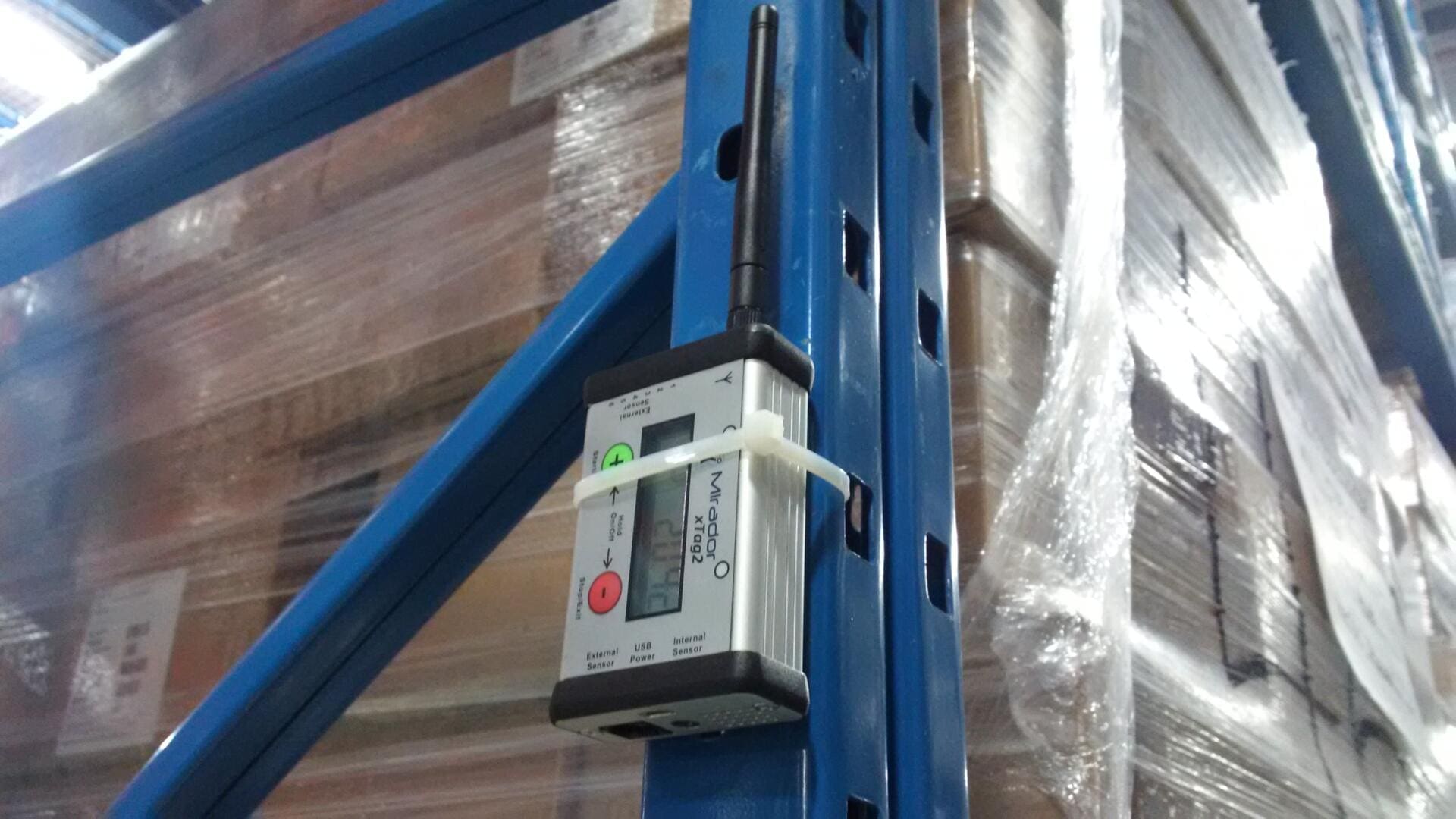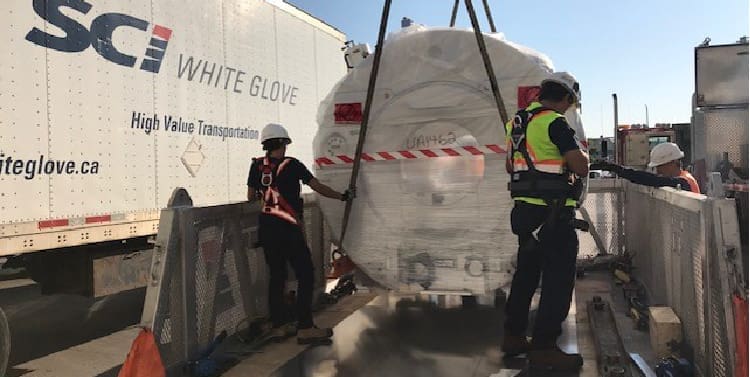Welcome to our Q&A focused on the dynamic world of third-party logistics (3PL) for the health, beauty, and wellness sector. In an era where consumer expectations are constantly evolving, businesses in this industry are increasingly turning to 3PL providers to streamline their supply chain and enhance overall efficiency. The healthcare industry is unique within the logistics space due to its particular compliance and regulatory constraints which require specialized fulfillment resources, skills, and services.
We sat down with SCI’s VP of Healthcare, Peter Tostevin, and Director of Strategic Healthcare Accounts, Amy Lawrie to learn more about SCI’s unique healthcare, beauty, and wellness fulfillment services, as well as the latest industry insights and trends.
Can you give us a brief overview of the history of SCI’s healthcare, beauty, and wellness division? When did SCI first begin working with these types of clients and how has the business grown over the years?
Peter Tostevin:
SCI began working with health, beauty, and wellness brands in 2003. The company originally served B2C clients, but quickly expanded to include B2B fulfillment as well. Over the years, we’ve supported many clients with their entry into the Canadian market and helped brands transition from wholesale models to omni-channel fulfillment strategies. As we grew, we incorporated GMP compliant facilities, and introduced in-house kitting and labeling services.
As our health, beauty, and wellness partnerships expanded we also diversified our service portfolio to include comprehensive Quality Assurance and Compliance support. These services especially helped clients when expanding their product lines and with their growth through M&A activities. In addition to our contract logistics services, our clients also benefit from having access to our white glove and transportation management service offerings.
What expertise and solutions does SCI provide for the unique needs of a health, beauty, and wellness supply chain?
Peter Tostevin:
SCI has an extensive supply chain network that includes Health Canada licensed and GMP certified facilities. These types of facilities must follow stringent processes to ensure the quality and efficacy of the products handled at these sites. Examples of the special services we have at our facilities includes temperature-controlled areas with humidity monitoring, specialized handling procedures, and Quality Assurance teams.

SCI provides in-house Quality Assurance and has robust quality management systems and inbound inspections. This includes segregated returns and quarantine areas to guarantee our clients’ operations are fully compliant in Canada. We also have in-house licensed labeling and packaging activities that help streamline operations.
What types of healthcare, beauty, and wellness clients does SCI work with? There are a variety of segments within these industries – who is best suited to SCI’s solutions?
Peter Tostevin:
SCI specializes in fulfillment for direct-to-consumer health, beauty, and wellness e-commerce brands, and omni-channel retailers. We work with retailers that sell cosmetics, protein powders, natural health products, vitamin and supplement brands, personal-care products, medical devices and more.
We are also uniquely equipped to manage the delivery and installation of high-value medical products and devices of all sizes. Our highly skilled teams can deliver, install, and assemble items such as MRI machines, PET scan machines, etc.
What kind of growth and changes have you seen in the market over the past few years? What new consumer trends are you seeing from a retail and supply chain perspective?
Peter Tostevin:
There has been a growing demand for personalization and customized products in the healthcare, beauty, and wellness sectors. Consumers are looking for tailored solutions for their specific needs and preferences. We’ve seen e-commerce retailers respond by offering personalized recommendations, customizable products or kits, and subscription services, which enhance the overall customer experience.
Consumers are also increasingly conscious of environmental and social sustainability. This awareness has influenced what they buy, leading to a rise in demand for sustainable and eco-friendly products. We’ve seen e-commerce retailers respond by offering a broader range of sustainable options, promoting ethical sourcing and production practices, and providing transparent information about their products’ environmental impact. As a brand’s 3PL provider we’re making important sustainability investments in our company by focusing on energy efficiency and process improvements to help reduce emissions.
SCI prides itself on providing value to our clients and delivering solutions. What value-added-services does SCI offer its health, wellness, and beauty clients?
Amy Lawrie:
SCI provides in-house kitting & packaging and holds NHP, and Drug Packaging & Labelling Licenses. We are also licensed for repacking, relabeling, and detailed inspections. Our contract packing services include sorting, stuffing, tagging, and labelling to suit our clients’ high-volume packing needs. We’ve seen the rise in customization and subscription boxes in the health and wellness space, and have the in-house resources to serve these clients and their needs. For brands offering their customers subscription boxes and kits we have the flexibility to meet their brand vision and create the perfect un-boxing moment. We can easily add holiday messaging, promotional inserts, tissue paper, etc.

From assembling curated subscription boxes, to labeling natural health products or medical devices, SCI provides the in-house kitting and packaging services our clients need to exceed their customers’ expectations and sell compliant products in Canada.
How have SCI’s services and solutions changed to keep up with new technology and changing consumer demands and expectations?
Amy Lawrie:
To keep up with changing trends and demands, SCI has invested in a technology-forward approach to logistics, fulfillment, and transportation. Our tools, integrations, and automations help mitigate risks, maximize production capacity, and optimize operations to save on our client’s bottom line.
One of the technologies we’ve invested in is our improved warehouse management system (WMS) to support our clients’ growth. Our WMS manages multiple DTC channels, and enables B2B wholesale fulfillment, while also providing forecasting, order planning, and seamless returns. Our WMS also meets Health Canada requirements including recall reporting and retention sampling. Tracking lots and expiration dates helps SCI deliver our clients’ high-quality goods to their consumers.

Our clients can also see dynamic, up-to-date reports of their business metrics with SCI’s business intelligence tool. The reporting from this tool includes on-hand inventory, order status, percentage of fulfilled orders, and shipment tracking.
We’re always looking for ways to continuously improve our operations. SCI uses automation technology to improve efficiency and increase productivity where possible. Our investment in technology helps reduce carbon use, support our employees, and fulfill orders faster.
We’re seeing growth in cross-border ecommerce especially between USA and Canada. How can SCI support direct-to-consumer health and wellness brands with their cross-border strategy?
Amy Lawrie:
We’ve seen a lot of success partnering with U.S. brands to help them localize their inventory in Canada to better serve the Canadian market. With our end-to-end supply chain solutions, including localized warehousing, fulfillment, and transportation, we’re able to support the accelerated growth that happens when entering a new market. By localizing inventory in Canada brands can reduce delivery times and improve shipping costs for Canadian consumers. Our in-house kitting and labeling services have also been invaluable for US clients. We can re-label or re-package US products to make them sellable in Canada. This includes rework projects where ink-ed items are reprinted directly onto and re-packaged into new boxes. This is commonly done to meet bilingual packaging language requirements in Canada.
What obstacles can US-based companies face when expanding into Canada?
Amy Lawrie:
One of the obstacles that most U.S. brands face when expanding into Canada is meeting a new set of rules and regulations. The Canadian market has its own set of regulatory and compliance standards that differ from those in the United States. Brands looking to expand into Canada need to navigate through various regulatory frameworks, including health product regulations, packaging and labeling requirements, ingredient restrictions, and licensing processes. We understand that navigating the Canadian market and adhering to these regulations can be time-consuming and overwhelming. That’s why we have in-house Quality Assurance experts, and relationships with Regulatory Compliance companies to help companies meet Health Canada requirements.

Establishing an efficient distribution and logistics network in Canada can also be challenging for US brands. Canada is a big country with varying population density. We have years of experience and a vast warehousing and distribution network across Canada. We’re here to help with careful planning for warehousing, transportation, and inventory management.
Quality assurance is a key part of SCI’s Health and Wellness supply chain solutions. Can you elaborate on what is involved in this part of the process and why it’s so important in the health and wellness space?
Amy Lawrie:
SCI has developed a structured Quality Management System that encompasses processes, procedures, and responsibilities for continuously delivering high-quality services that meet regulatory and customer requirements. Our QA services ensure established procedures and protocols are being adhered to and we conduct regular product inspections and releases.
Our team also controls storage, handling, and transportation of products to minimize any risk to their quality. Other parts of the QA process include providing training to staff to properly carry out procedures, managing supplier evaluations, conducting healthcare site audits, and maintaining records.
Maintaining records is important for product traceability. Quality assurance includes implementing systems for product traceability and serialization, enabling the tracking of products throughout the supply chain. This helps in identifying and resolving issues promptly, such as recalls or quality problems. It is our QA team’s job to also investigate and document any deviations to determine the root cause and impact, ensuring proper corrective and preventative action is taken.
Quality assurance also involves identifying potential risks in the supply chain and implementing measures to mitigate them. This proactive approach helps prevent adverse events and ensures that the supply chain operates smoothly. By performing in-house Quality Assurance, it helps cut out additional handling and transportation costs, and reduces the amount of touch-points which ultimately reduces the risk of product loss or errors.
If you’d like to learn more about SCI’s healthcare, beauty, and wellness services click here, or contact one of our supply chain experts here.
